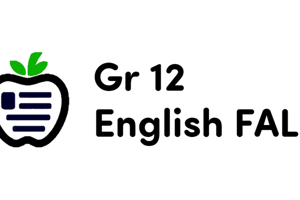Podcast
Questions and Answers
What is the formula for forming the simple future tense?
What is the formula for forming the simple future tense?
- Subject + Verb (base form) + will + not
- Subject + will + Verb (base form) (correct)
- Subject + not + will + Verb (base form)
- Subject + Verb (base form) + will
What is one of the main uses of the simple future tense?
What is one of the main uses of the simple future tense?
- To express past habits
- To express present emotions
- To express future plans or intentions (correct)
- To express past completed actions
Which of the following is a common time expression used with the simple future tense?
Which of the following is a common time expression used with the simple future tense?
- Yesterday
- Tomorrow (correct)
- Next year ago
- Last week
How is the simple future tense negated?
How is the simple future tense negated?
What type of question asks for specific information about the future?
What type of question asks for specific information about the future?
What is an example of a promise or offer in the simple future tense?
What is an example of a promise or offer in the simple future tense?
What is a common use of the simple future tense in predicting future events or outcomes?
What is a common use of the simple future tense in predicting future events or outcomes?
Flashcards are hidden until you start studying
Study Notes
Formation
- The simple future tense is formed using the auxiliary verb "will" + the base form of the main verb.
- The formula is: Subject + will + Verb (base form)
Examples
- I will eat breakfast at 8 am.
- She will finish her project by tomorrow.
- They will attend the meeting at 2 pm.
Uses
- To express future plans or intentions:
- I will go to the gym tomorrow.
- We will have a party next weekend.
- To predict future events or outcomes:
- It will rain tomorrow.
- The company will make a profit this year.
- To make promises or offers:
- I will help you with your homework.
- We will give you a discount on your purchase.
Time Expressions
- Common time expressions used with the simple future tense include:
- Tomorrow
- Next week/month/year
- By/in + time (e.g. by tomorrow, in an hour)
- At + specific time (e.g. at 8 am)
Negation
- The simple future tense is negated using "will not" or "won't":
- I will not attend the meeting.
- She won't be able to come to the party.
Questions
- Yes/No questions:
- Will you attend the meeting?
- Will it rain tomorrow?
- Wh- questions:
- What will you do tomorrow?
- When will they arrive?
Formation of Simple Future Tense
- Formed using the auxiliary verb "will" + the base form of the main verb
- Formula: Subject + will + Verb (base form)
Uses of Simple Future Tense
- Express future plans or intentions
- Examples: going to the gym, having a party
- Predict future events or outcomes
- Examples: it raining, a company making a profit
- Make promises or offers
- Examples: helping with homework, giving a discount on a purchase
Time Expressions with Simple Future Tense
- Common time expressions used:
- Tomorrow
- Next week/month/year
- By/in + time (e.g. by tomorrow, in an hour)
- At + specific time (e.g. at 8 am)
Negation of Simple Future Tense
- Negated using "will not" or "won't"
- Examples: not attending a meeting, not being able to come to a party
Questions with Simple Future Tense
- Yes/No questions:
- Examples: Will you attend the meeting?, Will it rain tomorrow?
- Wh- questions:
- Examples: What will you do tomorrow?, When will they arrive?
Studying That Suits You
Use AI to generate personalized quizzes and flashcards to suit your learning preferences.




